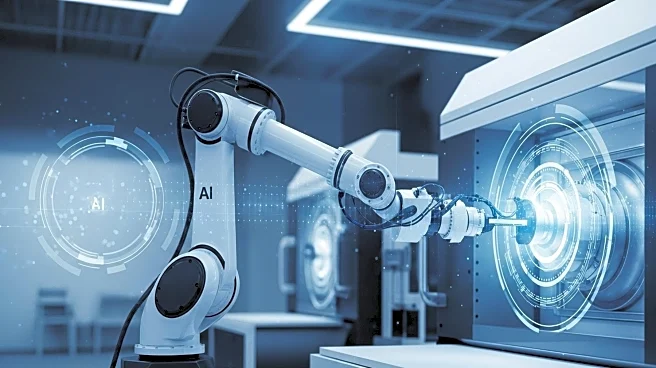What is the story about?
What's Happening?
Telefónica Tech is emphasizing the need for UK manufacturers to move beyond AI pilot projects and fully integrate artificial intelligence into their operations. At the Scottish Manufacturing & Supply Chain Conference, Telefónica Tech highlighted the potential of AI to transform manufacturing processes, citing examples such as predictive maintenance, process automation, and demand forecasting. Despite the enthusiasm for AI, many manufacturers face challenges such as misaligned strategies, outdated data systems, and limited internal expertise. Telefónica Tech, as a Microsoft technology partner, offers tailored solutions to help manufacturers deploy AI-driven analytics, integrate legacy systems with modern cloud infrastructure, and build secure environments for innovation.
Why It's Important?
The integration of AI in manufacturing is crucial for UK manufacturers to remain competitive in a global market. AI can significantly reduce waste, optimize energy use, and streamline operations, leading to increased efficiency and cost savings. The potential economic impact is substantial, with MakeUK research suggesting that closing the digitalization gap could add £150 billion to the UK GDP by 2035. However, successful AI adoption requires a skilled workforce and robust digital infrastructure, highlighting the importance of strategic partnerships and upskilling initiatives. Manufacturers that embrace AI early can gain a competitive edge, while those that lag may struggle to meet evolving customer expectations.
What's Next?
Manufacturers need to overcome barriers to AI adoption by aligning AI strategies with business goals, enhancing data systems, and fostering AI fluency among employees. Telefónica Tech is offering AI Envisioning Workshops to help manufacturers explore Microsoft solutions and AI tools that can unlock new levels of innovation. As manufacturers begin to implement AI more broadly, they may discover new markets and service offerings, further driving industry growth. The focus will be on empowering people alongside technology, ensuring that workforce skills are seen as a strategic supply chain.
Beyond the Headlines
The shift towards AI in manufacturing is not just a technological change but a cultural one, requiring companies to rethink their approach to workforce development and change management. AI should be viewed as 'Assistive Intelligence,' emphasizing the role of human skills in leveraging AI tools effectively. This transformation could lead to evolving job roles and require a willingness to upskill, making change management a critical component of successful AI integration.

















